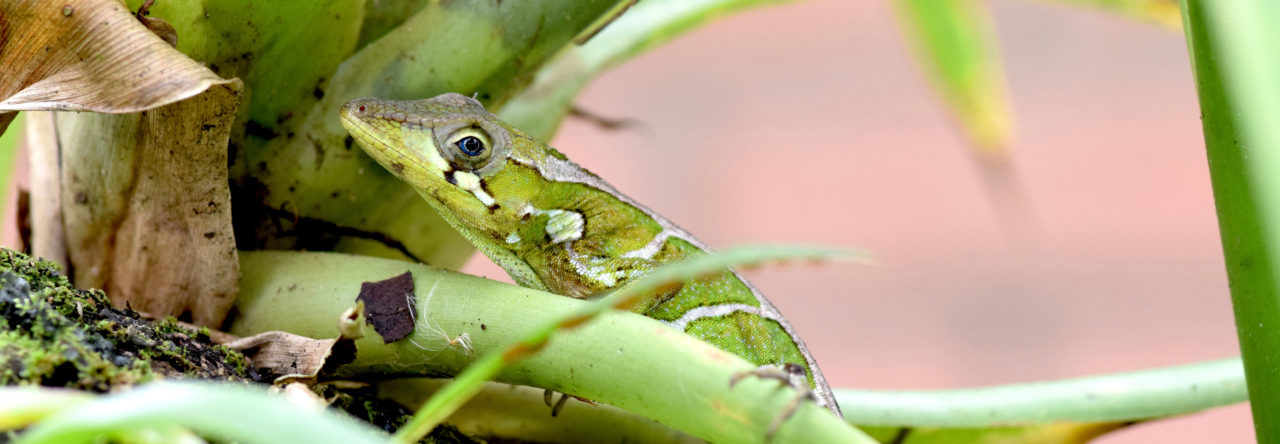Yesterday I posted a short video of the Hispaniolan trunk anole (Anolis distichus) feeding on ants and noted that this species eats lots of social insects. Like most anoles, however, A. distichus is also a fairly opportunistic feeder that will eat more or less whatever it can fit in its mouth. I illustrate the diversity of this species’ diet with today’s photos of predation on an orthopteran and a curculionid beetle (both photographs were taken in situ in the Dominican Republic).
Köhler & Vesely begin their recent Herpetologica paper [doi link] on the Central American anole Anolis sericeus with a quote from the famous West Indian herpetologist Thomas Barbour (1932), who suggested that it was ‘‘a wicked and sinful affection to describe more anoles.’’ Undaunted, Köhler & Vesely go on to elevate two species from within the widespread Anolis sericeus based on differences in scalation, dewlap size and hemipenal morphology. It’s a shame their photos are published in black and white because A. sericeus and its relatives have one of the prettiest dewlaps you’re ever going to see (this crappy photo I took in Belize a few years back really does them little justice). The diagnostic features that Köhler & Vesel report are compelling, and provide another exciting example of morphologically cryptic species in a widespread anole species.
Hispaniola trunk anoles (a.k.a. the distichus series) tend to specialize on social insects. The little bugger in this video was chowing down on ants when we filmed him last summer in the Dominican Republic. You’ll see him flash his dewlap after picking off a few ants; such post-feeding displays are common in A. distichus.
check out the lizard comic book super hero, Anole here
Poe named an anole
williamsmittermeieror’m:
Ponder, weak, weary.
Perched on a warm day,
Dewlap dewlap dewlap dew –
Blackbird predation.
Dewlap and Toepad.
Adaptive Radiation.
Key Innovations?
Did you like it? Or… maybe you think it’s not that easy to follow. Let me know at Printsy if you can.




